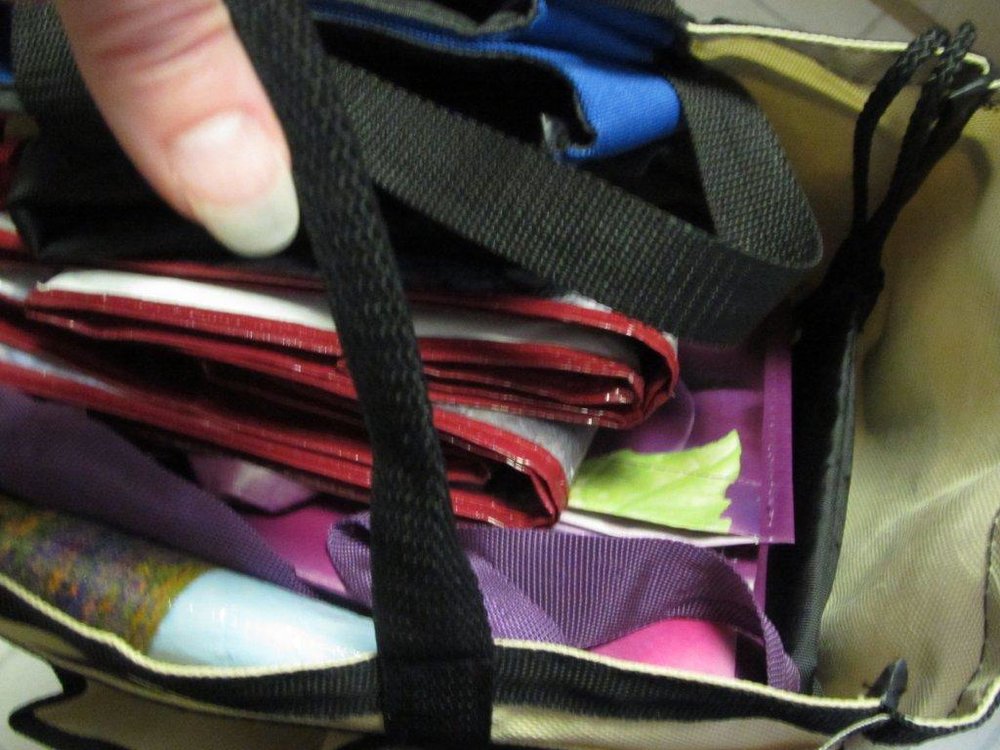Grocery Store Strategies
/Eating at home - and eating exactly what you intend - is one of the pleasures of life. Of course - savvy shopping at the grocery store makes it a lot easier. Here are a few strategies for achieving the most bang for your time (one trip to the grocery store a week should be the goal) and your money (no wasted food, coupons when applicable, bulk items when possible):
- Make a list of meals for the week. This is required unless you want to make multiple trips to the grocery store to get ingredients you don’t have on hand. Base your list on the meals you plan.
- Always go to the store with a list. I use an app called OurGroceries that makes it easy for both my husband and I to add items to the list from a PC, iPad, Android phones, and Kindle. When I’m in the store, I use the Kindle to mark items off as I shop.
 Take your own bags. Reusable bags are sturdier and can be loaded with more items (see my bag of bags at right). You’ll make fewer trips to get your groceries unloaded when you get home. And it is much better for the environment. Some stores are even giving cents back for using your own bags.
Take your own bags. Reusable bags are sturdier and can be loaded with more items (see my bag of bags at right). You’ll make fewer trips to get your groceries unloaded when you get home. And it is much better for the environment. Some stores are even giving cents back for using your own bags.- Group items for the checker so that items are bagged together that will end up stored together. I usually group items into the following bags: veggies/fruit, meat, other refrigerator, pantry, and other.
- Coupons. Take advantage of coupons for things you are going to buy anyway or an item you want to try. The down side with coupons is they are often for poor food choices (highly processed, very sweet, or non-food masquerading as food) so never buy something simply because there is a coupon.
- Familiarize yourself with the store. Larger stores have a lot of choices and may have similar items in two different places. For example - many times stores separate organic products from nonorganic ones. Make sure you understand what you are buying.
- Freeze produce before it goes bad (i.e. if you find you cannot us it up before it spoils). Use it later to make smoothies, muffins, or soup. A banana that is about to be overripe can be peeled and frozen…and become an excellent addition to a smoothie or make banana muffins later! A frozen tomato will split but that is fine for use in a soup or smoothie. You should always strive to eat all the food you buy rather than throwing it away and buying more.
- Educate yourself on the most important produce to buy organic. Get the Environmental Working Group’s guide.
- Whole grains in the refrigerator. Whole grains can become rancid. Store them in the refrigerator rather than the pantry.
- Buy in bulk only if:
- It costs less (most of the time sit does…but not always)
- You will use all of it in a reasonable period of time
- There is storage space in your home
And enjoy your grocery shopping.



















